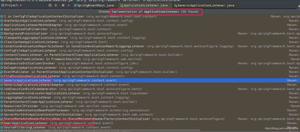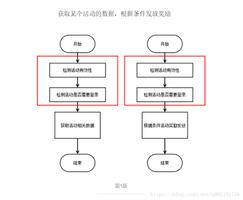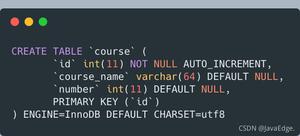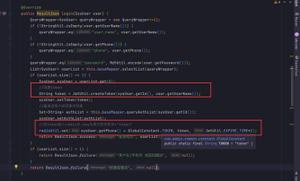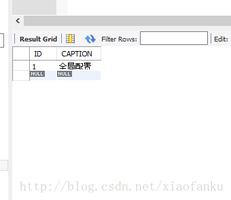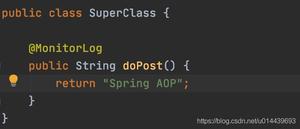Spring 注入集合
本文内容纲要:
- 一个示例如果你想传递多个值,如 Java Collection 类型 List、Set、Map 和 Properties,应该怎么做呢。
为了处理这种情况,Spring 提供了四种类型的集合的配置元素,如下所示:

一个示例
- 新建一个Spring项目
- 新建Java文件:JavaCollection.java和MainApp.java
这里是 JavaCollection.java 文件的内容:
package hello;import java.util.*;
public class JavaCollection {
List addressList;
Set addressSet;
Map addressMap;
Properties addressProp;
// a setter method to set List
public void setAddressList(List addressList){
this.addressList = addressList;
}
// prints and returns all the elements of the list.
public List getAddressList(){
System.out.println("List Elements: "+ addressList);
return addressList;
}
// a setter method to set Set
public void setAddressSet(Set addressSet){
this.addressSet = addressSet;
}
// prints and returns all the elements of the Set.
public Set getAddressSet(){
System.out.println("Set Elements: "+addressSet);
return addressSet;
}
// a setter method to set Map
public void setAddressMap(Map addressMap){
this.addressMap = addressMap;
}
// prints and returns all the elements of the Map.
public Map getAddressMap(){
System.out.println("Map Elements: "+addressMap);
return addressMap;
}
// a setter method to set Property
public void setAddressProp(Properties addressProp){
this.addressProp = addressProp;
}
// prints and returns all the elements of the Property.
public Properties getAddressProp(){
System.out.println("Property Elements: "+ addressProp);
return addressProp;
}
}
下面是 MainApp.java 文件的内容:
package hello;//import org.springframework.context.support.AbstractApplicationContext;
import org.springframework.context.ApplicationContext;
import org.springframework.context.support.ClassPathXmlApplicationContext;
public class MainApp {
public static void main(String[] args) {
ApplicationContext context =
new ClassPathXmlApplicationContext("Beans.xml");
JavaCollection jc = (JavaCollection) context.getBean("javaCollection");
jc.getAddressList();
jc.getAddressSet();
jc.getAddressMap();
jc.getAddressProp();
}
}
下面是配置所有类型的集合的配置文件 Beans.xml 文件:
<?xml version="1.0" encoding="UTF-8"?><beans xmlns="http://www.springframework.org/schema/beans"
xmlns:xsi="http://www.w3.org/2001/XMLSchema-instance" xmlns:util="http://www.springframework.org/schema/util"
xsi:schemaLocation="http://www.springframework.org/schema/beans http://www.springframework.org/schema/beans/spring-beans.xsd http://www.springframework.org/schema/util https://www.springframework.org/schema/util/spring-util.xsd">
<!-- Definition for javaCollection bean-->
<bean id="javaCollection" class="hello.JavaCollection" >
<!-- results in a setAddressList(java.util.List) call -->
<property name="addressList">
<util:list>
<value>INDIA</value>
<value>Pakistan</value>
<value>USA</value>
<value>USA</value>
</util:list>
</property>
<!-- results in a setAddressSet(java.util.Set) call -->
<property name="addressSet">
<set>
<value>INDIA</value>
<value>Pakistan</value>
<value>USA</value>
<value>USA</value>
</set>
</property>
<!-- results in a setAddressMap(java.util.Map) call -->
<property name="addressMap">
<map>
<entry key="1" value="INDIA"/>
<entry key="2" value="Pakistan"/>
<entry key="3" value="USA"/>
<entry key="4" value="USA"/>
</map>
</property>
<!-- results in a setAddressProp(java.util.Properties) call -->
<property name="addressProp">
<props>
<prop key="one">INDIA</prop>
<prop key="two">Pakistan</prop>
<prop key="three">USA</prop>
<prop key="four">USA</prop>
</props>
</property>
</bean>
</beans>
运行结果如下:
List Elements: [INDIA, Pakistan, USA, USA]Set Elements: [INDIA, Pakistan, USA]
Map Elements: {1=INDIA, 2=Pakistan, 3=USA, 4=USA}
Property Elements: {two=Pakistan, one=INDIA, three=USA, four=USA}
每天学习一点点,每天进步一点点。
本文内容总结:一个示例,
原文链接:https://www.cnblogs.com/youcoding/p/12756012.html
以上是 Spring 注入集合 的全部内容, 来源链接: utcz.com/z/296037.html

